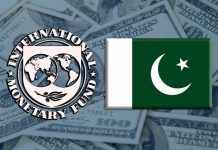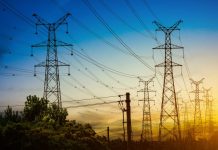ISLAMABAD: Air quality in Pakistan is deteriorating at a faster rate due to an unprecedented increase in motor vehicles.
In the world’s top 20 most polluted cities, three are located in Pakistan.
Anthropogenic activities and natural phenomena are the two major sources of air pollution. Humans cannot control this natural phenomenon, but pollution from anthropogenic activities can be managed by adopting clean production practices.
The government investment in public transport is not sufficient to provide transport facilities for its people. So, a large chunk of population buys their own vehicles for mobility. Thus, with the increase in population pressure, demand for alternative modes of transport such as motor cars, pickups, taxis, station wagons, and jeeps has increased.
Dr Abedullah, Chief of Research at Pakistan Institute of Development Economics (PIDE) Islamabad, told WealthPK that the private sector should come forward to provide transport facility with the collaboration of the government. He said foreign investment should be attracted in the transportation sector to benefit people.
The first government initiative of public transport through metrobus was launched in 2013 in Lahore, followed by Rawalpindi-Islamabad metrobus in 2015, Multan metrobus in 2017, Trans Peshawar in 2020 and Karachi Breeze in 2021.
In addition, the first orange line metro train in Pakistan was officially inaugurated on October 20, 2020, which carries 250,000 passengers every day. But this is not sufficient to meet the increasing demand for mobility in the mega cities of Pakistan. Therefore, demand for vehicles is continuously increasing.
Dr Abedullah said the government should incentivise the private sector (local and foreign) to develop better infrastructure. He said it will not only help reduce air pollution, but also minimise vehicle congestion, and also boost government revenue in the form of taxation. He said that instead of making underpasses or flyovers to keep the flow of traffic normal, the government should invest in high commercial vehicles.
“Making new underpasses is not a suitable solution to minimize the congestion, as it causes an increase in air pollution by increasing the number of vehicles. The government should take innovative steps for their citizens to minimize the harmful effects of air pollution,” he said.
The drastic increase in the number of vehicles over the last decade increased environmental pollution due to the increasing combustion of fossil fuels. During the last two decades, demand for motorcycles increased by 928%, for light commercial vehicles by 725%, and for heavy commercial vehicles by 64%, according to Pakistan Institute of Development Economics (PIDE).
The government did not provide a successful transport system independently or with the collaboration of the private sector to accommodate the increasing population pressure. Hence, people have no choice except to purchase their own vehicles to commute from one place to another.
Dr Abedullah said that the government metro bus project is not enough to increase the demand of public, so sub-routes should be made so the public can easily move from one place to another.
“Increasing the price of cars and parking fees is also beneficial to reduce the usage of cars. By taking this action, people will prefer public transport to private,” he said.
“When public transport is used effectively, the environmental benefits will have a lasting impact on future generations. Our roads are crowded with automobiles, not people, causing harm to the environment as global pollution continues to increase along with car usage,” he added.
INP





